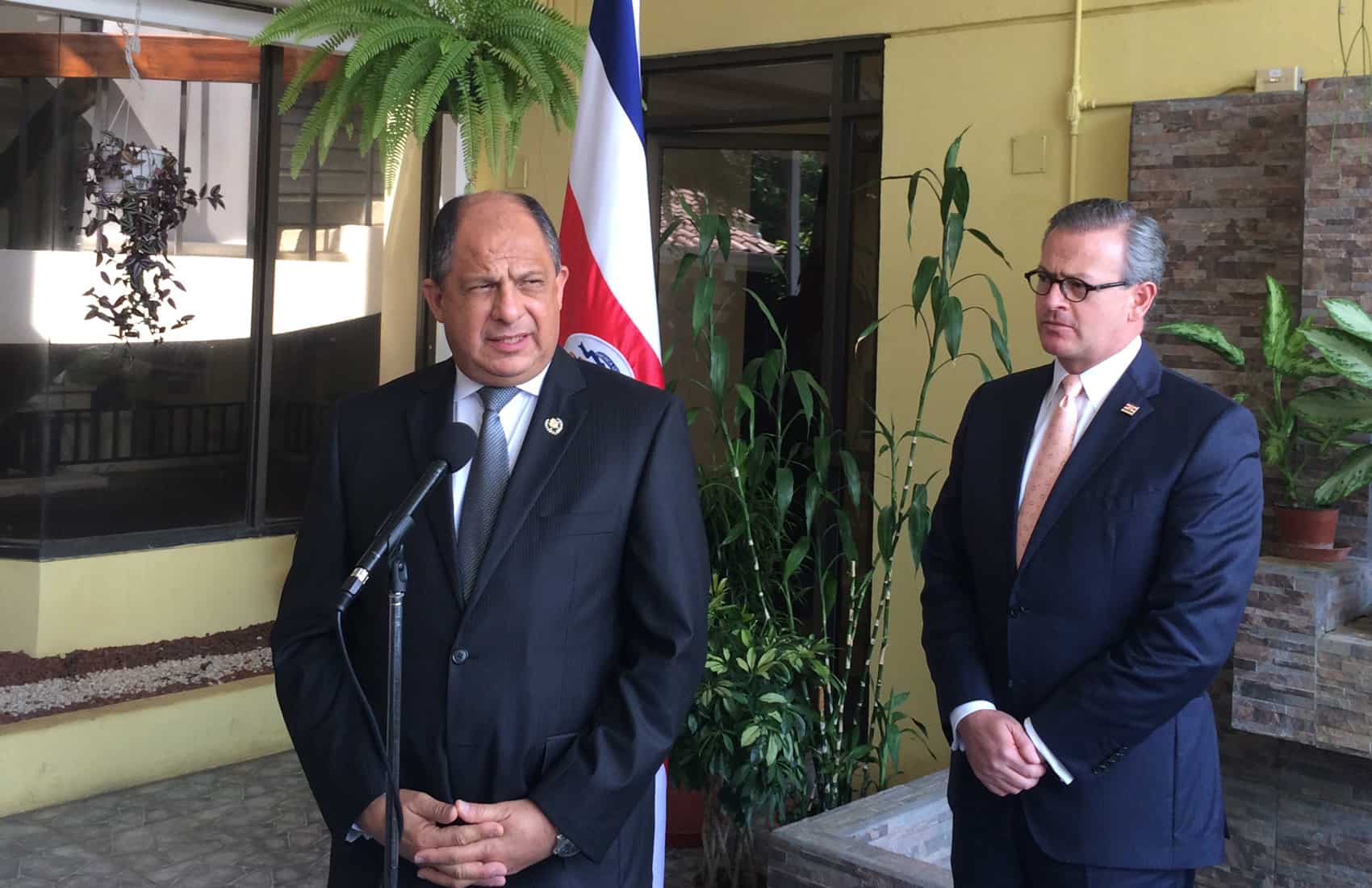A week after President Luis Guillermo Solís saw off one of the last flights of the airlift that carried thousands of stranded Cuban migrants to the U.S. border, hundreds more Cubans are amassing again at Costa Rica’s southern border with Panama.
Still, Solís said Thursday that Costa Rica had “accomplished” its four-month humanitarian mission caring for the Cubans migrants and that the country would not receive more migrants. The president addressed potential arrivals at a news conference, saying, “We’re not going to be able to attend to you as we would like and as they deserve.”
The president said that if migrants enter Costa Rica illegally they will be deported. Cubans are part of a small group of nationalities that require restricted visas to enter Costa Rica.
The president placed unequivocal blame for the continuing migrant crisis on the U.S. Cuban Adjustment Act.
Recommended: ‘Dusty-foot’ Cubans forgo rafts, choose land route through Costa Rica
“Cuban immigration will continue because it’s a structural phenomenon,” Solís said, “until the government of the United States puts an end to the laws that attract this migration. There’s a responsibility to call attention to these laws. …
“Until these laws change we will continue to see this situation that, from a humanitarian point of view, creates so much pain and risk for these thousands of Cuban migrants,” he said.
As migrants continue to build up where the crisis started last November, Barack Obama is set to be the first U.S. president to travel to Cuba in 88 years on March 20.
Solís asked police to increase their presence in the Southern Zone and called for the International Organization for Migration to hold a regional meeting of foreign ministers and immigration administrators in the coming weeks to address this new wave of Cuban migrants.
Costa Rica granted more than 7,800 Cuban migrants temporary transit visas between Nov. 1 and Dec. 18, 2015. A conflict between Costa Rica and Nicaragua closed the northern border to Cubans migrants, leaving them stranded here. Eventually a plan was reached to fly out 4,800 of the migrants. The remaining thousands left the country through their own means, including smugglers.
Solís said that the government was following the situation and was “heartbroken” by the continued migration flow. He added: “We know what the cost is of these movements.”
Recommended: Reforms by Castro, Obama set stage for Cuban migration spike






